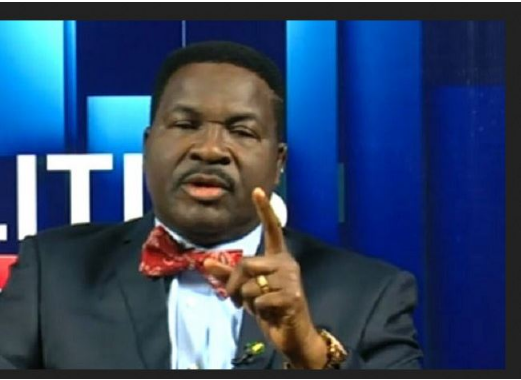Human rights lawyer, Mike Ozekhome, has interpreted the judgment of the Court of Appeal in Abuja in the favour of the Rivers State Government, saying the state government should collect the Value-Added Tax (VAT) as opposed to the Federal Inland Revenue Services (FIRS).
Ozekhome argued that the latest Appeal Court ruling on the matter upheld the Federal High Court’s judgment.
Recall that Nyesom Wike-led Rivers State government has been at loggerheads with the nation’s federal tax agency, FIRS, which hitherto held the constitutional power to collect VAT from companies.
Read Also: VAT: Appeal Court Orders Rivers, FIRS To Maintain Status Quo
A Federal High Court (FHC) holding in Port Harcourt had on August 10, 2021, ruled that Rivers State should collect VAT in the state, but the Court of Appeal on Friday, on the matter asked both parties to maintain status-quo which the majority had inferred to be in the favour of FIRS.
The Haruna Tsanami three-man panel of the appellate court ordered “status quo ante bellum.”
This was contained in a statement titled, “FIRS & Rivers State Government: Who Should Now Collect VAT?”
The human rights lawyer clarified that the subsisting law was that Rivers had overpowered FIRS to collect VAT, and as such should be maintained until the higher court rules otherwise.
Ozekhome said, “The Court of Appeal, Abuja division, has just ruled that both parties maintained the status quo in an appeal filed by the FIRS against the judgement of the FHC, Port Harcourt, validating the Rivers State law that empowered Rivers State Government to collect VAT, as against the FIRS that had hitherto collected VAT.
“Clearly, the status quo ante bellum was before the breakout of the hostilities. The hostilities broke out when the FIRS dragged the Rivers State Government to court, arguing that it cannot collect VAT based on its law.
“The said law was already duly passed and made operational by Rivers State House of Assembly that has the constitutional competency under section 4 of the Constitution to do so.
“The FHC, Port Harcourt, Rivers State, had earlier held that it was the Rivers State Government that was competent to collect VAT, not the FIRS.
“Law was already therefore in operation before the FIRS challenged the validity of an FHC judgement, PH, that had given the Rivers State Government the power to collect the VAT.
“So, the status quo is that it is the Rivers State Government that has the power to collect VAT, until perhaps, the Court of Appeal rules otherwise and set aside the FHC judgment.
“However, the Court of Appeal ruled that all parties on the matter (including the FIRS, Attorney General of the Federation and the Lagos State Government that sought to be joined should maintain the status quo, so as to preserve the res and prevent the FHC judgment from being negatively affected.
“Consequently, to avoid unnecessary bickerings and needless head-on collision between the Attorney General of the Federation, the Federal Government ( which owns the FIRS) and the Rivers State Government in a matter that is already sudjudice, I will advise that both the Rivers State Government and the FIRS should both cease hostilities for now and maintain the status quo until the Court of Appeal finally pronounces on the matter.”

